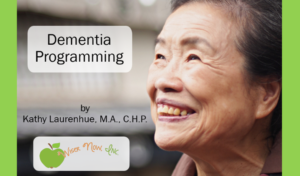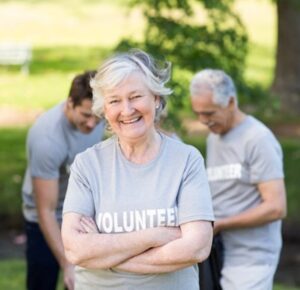e-Learning Courses
Affordable, High-Quality Courses for Activity Professionals
For more than 20 years, I have been creating topic-specific courses for clients serving activity professionals. Now, I’m excited to offer a select few directly through this site at a reduced cost — most just $15 each.
Current Course Offerings (scroll down to learn more):
- Journaling for Individuals
- Journaling for Activity Professionals
- Journaling for Every Writer
- Life Stories for Individuals
- Life Stories for Activity Professionals
- Coloring for Adults
- Community Service: You’re Never Too Old to Make a Difference
- Creating Family Partnerships, Part 1
- Creating Family Partnerships, Part 2
- Dementia Programming
- Going Clubbing
- Nature’s Flora Fun
- Team Building for Activity Professionals
- Time Management for Activity Professionals
Each course provides practical strategies and inspiration to enrich your activities and strengthen your impact. Detailed descriptions of all courses are available below.
If you need CEUs, visit the Activity Connection website here for these and many more courses at a higher price. (Courses offering CEUs are more expensive due to annual certification fees charged by NAAP.)
If there’s a specific topic you’re looking for, there’s a good chance I’ve already developed a course on it! Feel free to send your requests to Kathy@WiserNow.com.
Explore these affordable resources today and take the next step in enhancing your skills as an activity professional!
⭐️NEW⭐️ Journaling for Individuals
Whether you’re new to journaling or looking to enrich your existing practice, this inspiring course offers the tools, prompts, and purpose for meaningful self-discovery. A perfect companion to Telling Your Life Story for Everyone, this version is designed for individual use, with a special focus on personal reflection and creative expression.
What You’ll Explore:
The Benefits of Journal Keeping – Learn how journaling supports emotional well-being, memory, creativity, and mindfulness.
Types of Journals – Discover various formats, including:
- Daily reflections
- Gratitude journals
- Travel logs
- Thematic or art journals
Define Your Purpose – Consider your personal goals for writing, whether it’s for self-discovery, storytelling, healing, or legacy-building. Even if you’ve been journaling for years, you’ll find fresh perspectives, creative twists, and renewed motivation within these pages. This course will help you deepen your practice, uncover new insights, and spur your enjoyment along the journey of self-expression..
⭐️NEW⭐️ Journaling as Programming: A Companion Course to Life Story Writing for Activity Professionals
 Designed as an ideal companion to Telling Your Life Story for Activity Professionals, this course helps unlock the power of journaling as a tool for self-expression, reflection, joy, and connection. Whether your participants are longtime journal keepers or just beginning their writing journey, they’ll find inspiration, structure, and flexibility in this enriching program.
Designed as an ideal companion to Telling Your Life Story for Activity Professionals, this course helps unlock the power of journaling as a tool for self-expression, reflection, joy, and connection. Whether your participants are longtime journal keepers or just beginning their writing journey, they’ll find inspiration, structure, and flexibility in this enriching program.
What’s Inside:
The Benefits of Journaling – Explore how journaling boosts mental wellness, memory, and emotional clarity.
Journaling Formats – Discover over a dozen types of journals, including:
- Art journals
- Travel logs
- Gratitude or smile journals
- Daily reflections and more
Writing vs. Typing vs. Audio – Learn how different methods serve different needs and personalities.
Journaling Goals – Understand how to align journaling with emotional, creative, or therapeutic intentions.
A Wealth of Writing Prompts – Spark inspiration with flexible, thought-provoking journaling cues.
Leading a Journaling Class – Tips and strategies for activity professionals to guide participants with confidence and creativity.
Sample Exercise – A focused activity to help journal keepers recognize and celebrate their best qualities.
Whether you’re leading a group or encouraging individual reflection, this course offers limitless possibilities for variety, personalization, and meaningful discovery. Participants will deepen their self-awareness, confidence, and connection, both with themselves and others.
⭐️NEW⭐️ Journaling Printable Exercises for Every Writer
 12 Downloadable, Printable Exercises
12 Downloadable, Printable Exercises
Both the Journaling as Programming and Journaling for Individuals courses end with a “Your Best Qualities” exercise to help you identify your personal strengths. Now you can further supplement that exercise with 11 more that prompt reminiscences of your childhood and early life experiences. While aimed at older adults who were alive in the 1950s and 60s, the exercises about backyard games, childhood freedoms, fads, toys, early jobs, and more are likely to have wide appeal. They are perfect for solo reflection, conversation starters around the dinner table, or fun group discussions with family and friends as well as for inspiring your journaling. They can also stand alone as interesting exercises to conjure memories and insights.
Discover the Joy of Telling Your Life Story: A Fun and Engaging Course for Everyone
 Have you ever dreamed of writing your life story but felt overwhelmed by the process? This downloadable, printable course makes it easy and enjoyable with bite-sized exercises designed for you and your family.
Have you ever dreamed of writing your life story but felt overwhelmed by the process? This downloadable, printable course makes it easy and enjoyable with bite-sized exercises designed for you and your family.
Sharing your story, whether through writing or talking, strengthens connections—both in your brain and with the people you share it with. This course offers instantly usable ideas to help you reflect on your experiences, build self-awareness, and allow others to understand the unique events and values that have shaped you.
What You’ll Explore:
- The Basics: Your name, where you’ve lived, and the roots of your story.
- Habits and Personality: Reflect on the routines and traits that define you.
- Life Episodes: Relive key moments that shaped your journey.
- Values and Wisdom: Share the rules for living that guide you.
Additionally, you’ll receive an appendix with six engaging exercises for the whole family to enjoy. These activities are designed to spark meaningful conversations and create lasting memories.
Start your journey today and turn your life story into a gift for yourself and those you love!
Expanded Life Story Course for Activity Professionals: Supporting Connection and Understanding
 Take life storytelling to the next level with a comprehensive course designed specifically for activity professionals. This extended version offers even more exercises in the appendix, along with practical hints for working with individuals living with dementia and addressing sensitive topics thoughtfully.
Take life storytelling to the next level with a comprehensive course designed specifically for activity professionals. This extended version offers even more exercises in the appendix, along with practical hints for working with individuals living with dementia and addressing sensitive topics thoughtfully.
Key Features:
- Flexible Format: Use the suggested exercises as stand-alone activities or as part of an 8–10-week program.
- Build Connections: Help participants strengthen neural connections and foster deeper relationships with others.
- Foster Self-Awareness: Encourage participants to reflect on their experiences, enhancing their sense of identity.
- Improve Care and Understanding: Gain meaningful insights into participants’ lives, values, and personalities, which can enhance the quality of care and strengthen relationships between staff and participants.
Tailored for Dementia Support
This course includes strategies for making activities accessible to individuals living with dementia, ensuring that everyone can participate in a meaningful way.
Whether you’re an activity professional, caregiver, or part of a senior care team, this detailed course provides tools to inspire storytelling, build trust, and create a supportive and connected environment.
Community Service: You’re Never too Old to Make a Difference
- The benefits of volunteering for volunteers and the benefits to your organization of using volunteers
- Planning and brainstorming
- Creating a varied and inclusive volunteer service within your organization
- Some advice on volunteer fundraising projects
- Recruiting outside volunteers
- Training volunteers
- Enhancing the experience of volunteers
- Rewarding volunteers
- Continuing to evaluate and revise your volunteer program
- Resources
- Appendix of specific activities
Creating Family Partnerships, Part 1
 The single most important thing to understand when trying to build relationships with families of new residents in residential care settings is that those family members are experiencing loss and grieving for what once was. This course will provide the professional caregiver with many suggestions about how to assure the prospective resident and family caregiver that they are making the right decision. It will also give tips on making move-in day go as smoothly as possible.
The single most important thing to understand when trying to build relationships with families of new residents in residential care settings is that those family members are experiencing loss and grieving for what once was. This course will provide the professional caregiver with many suggestions about how to assure the prospective resident and family caregiver that they are making the right decision. It will also give tips on making move-in day go as smoothly as possible.
Creating Family Partnerships, Part 2
 After a new resident has moved in, it’s important to keep the family members as involved as they would like to be, not only so that they feel comfortable in your community, but so that their needs continue to be served. This course will give you many ideas for involving family members with residents. It will also give you suggestions for making the resident feel at home following move-in day.
After a new resident has moved in, it’s important to keep the family members as involved as they would like to be, not only so that they feel comfortable in your community, but so that their needs continue to be served. This course will give you many ideas for involving family members with residents. It will also give you suggestions for making the resident feel at home following move-in day.
Dementia Programming
 While aimed at educating activity professionals, this course will also benefit personnel in day care and home health settings as well as family caregivers.
While aimed at educating activity professionals, this course will also benefit personnel in day care and home health settings as well as family caregivers.
- Part 1 briefly covers delirium, Mild Cognitive Impairment (MCI), Alzheimer’s disease (AD), Dementia with Lewy Bodies (DLB), Vascular dementia, and Frontotemporal dementia.
- Part 2 covers normal aging changes + hints for adapting programming for dementia.
- Part 3 covers a variety of types of activities that tend to be adaptable to people living with dementia, IF you are willing to bend the rules, and notes some activities likely to be less successful with many people as their dementia progresses.
- Part 4 covers the many ways you can use Activity Connection content for engaging people living with dementia, some ways to use Wiser Now content, plus game ideas from the Creative Brain Games blog, and a bunch of other resources that have potential for people living with dementia of various types in various stages of progression.
End-of-Life Care, Memorial Services, and Moving On
- Creating a good death in residential care settings
- Supporting families and staff as end-of-life nears
- Ways to honor the life of the person who died
- Moving on
Defining a “good death” has multiple elements. They include:
- Making the dying person comfortable and at ease, and as much as possible, honoring the dying person’s wishes related to where he/she will die
- Helping the family cope
- Supporting the staff
Going Clubbing
 According to staff at the Mayo Clinic, “Good friends are good for your health. Friends can help you celebrate good times and provide support during bad times. Friends prevent loneliness and give you a chance to offer needed companionship, too.” The purpose of our Going Clubbing course is to help you help others form clubs and classes to foster friendships. Here you will find lots of ideas for forming five types of groups. They include those related to:
According to staff at the Mayo Clinic, “Good friends are good for your health. Friends can help you celebrate good times and provide support during bad times. Friends prevent loneliness and give you a chance to offer needed companionship, too.” The purpose of our Going Clubbing course is to help you help others form clubs and classes to foster friendships. Here you will find lots of ideas for forming five types of groups. They include those related to:
- Common subject interests, such as photography, travel, gardening, and bird watching
- Lifelong learning classes for studying things like art history or music appreciation
- Exercise that goes beyond sitting in a chair and doing leg lifts
- Common social interests, such as going to a ball game or the theater or playing cards
- Service that continues the work of existing clubs, such as Kiwanis and Rotary, or begins a new club for specific projects
Nature’s Flora Fun
 This course addresses flora rather than fauna: Nature programming ideas focused on plants (flora), rather than animals is a vast topic, that cannot be comprehensively addressed in a short course, but here you will find loads of suggestions related to:
This course addresses flora rather than fauna: Nature programming ideas focused on plants (flora), rather than animals is a vast topic, that cannot be comprehensively addressed in a short course, but here you will find loads of suggestions related to:
- The benefits of time spent in Nature and with Nature
- Getting out in Nature
- Gardening options
- Bringing Nature indoors in multi-sensory ways
- Nature programming ideas for trivia quizzes, word games, reminiscence and imaginative exercises, discussion topics and resources available through Activity Connection and Wiser Now
- Additional resources
- An Appendix of specific activities
Team Building for Activity Professionals
The first rule for building great teams is to have fun together. Sometimes working successfully together comes from sharing a traumatic event, but more often it’s simply sharing our workdays and the ordinary joys and challenges we face. Positive experiences build strong teams. In this course, humor and play have prominent roles.
- Why teambuilding is important
- Identifying your team(s), including various groups
- Choosing partners, dividing into teams
- Getting to know team members
- Characteristics of effective teams
- Skills of effective team leaders including conflict resolution
- Many examples of ways to make teambuilding fun – woven throughout the course and in an appendix
- Resources
New Course New Format
New course in slide show format on the most common forms of dementia and how to engage people living with them. Check it out in the description below.






